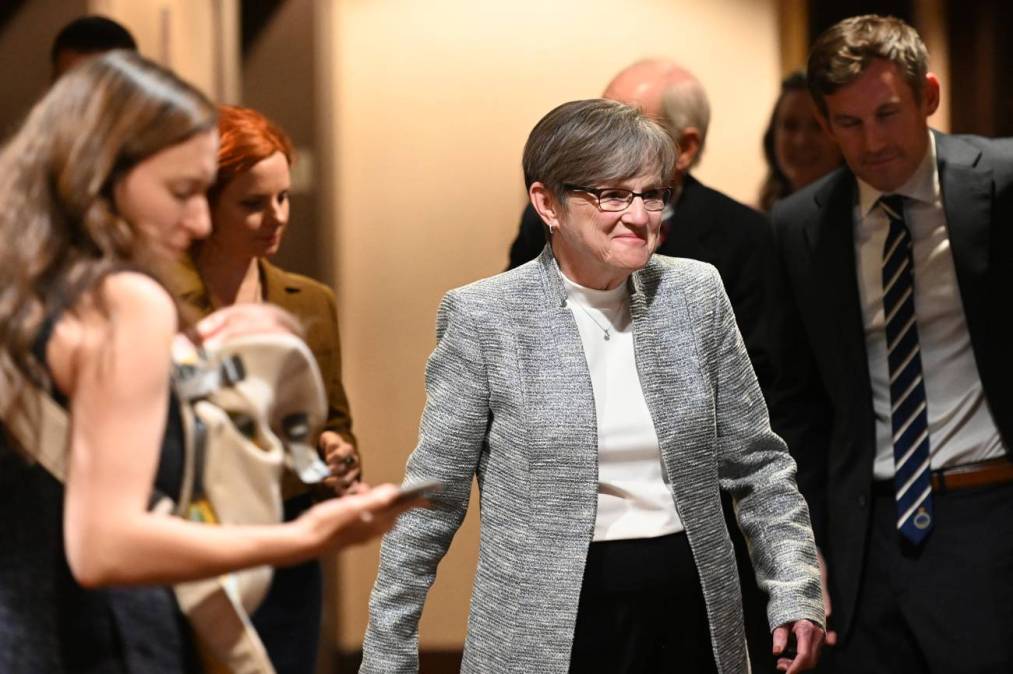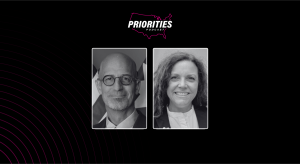Kansas spends $2.8M on digital literacy training for underserved groups

Kansas Gov. Laura Kelly on Thursday announced that the state will give $2.8 million to 15 organizations throughout the state to boost digital literacy training programs.
The funding targets universities, academies, community groups and libraries that provide computer skills courses to groups including convicts, ex-convicts, seniors, disabled people and unskilled workers. The funding is provided through a program created in January called the Digital Opportunities to Connect Kansans, or DOCK.
“The DOCK program demonstrates our commitment to provide the digital tools Kansans need to drive innovation and compete in the global market,” Kelly said in a press release. “These awards are a critical investment to connect all Kansans and support their success in the future economy.”
Among the recipients is the Center for Digital Inclusion at the University of Kansas, which is tasked with offering computer literacy training to 1,000 “justice-impacted” women, which the state’s announcement said will “provide digital skills crucial for job applications and reintegration into society after incarceration.”
The Learning Tree Institute at Greenbush, which provides educational services at six Kansas prisons, is partnering with the Southeast Kansas Education Service Center to create new learning materials and establish ways of reaching 15,000 seniors. That project aims to “improve access to information, reduce social isolation, enhance healthcare access, and boost employability,” according to the state’s announcement.
Kansas State University Research and Extension and the West Plains Extension District received funding to create a “digital ambassadors” program that addresses access to high-speed internet for seniors, minorities, disabled people and unskilled workers.
The Workforce Alliance of South Central Kansas is planning to provide free digital literacy training and certifications to underserved and rural populations in South Central Kansas.
The funding follows Kelly’s January announcement of the DOCK program, which received $4.75 million in funding and requires a 5% match from funding recipients.
Nearly all states are currently developing “digital equity” plans that include digital skills training as a prerequisite for federal broadband funding. The National Telecommunications and Information Administration in April approved California’s digital equity plan, unlocking more than $70 million in federal broadband funding.
Initiatives to improve digital literacy have for years been viewed by governors as useful pieces of their workforce and economic development programs. The National Governors Association in 2022 published a guide designed to help states gather data on their workforces, with the aim of informing how to appropriately allocate funding for digital literacy programs.
A 2019 study by the Pew Research Center found that digital literacy is a pervasive societal issue. The study showed that a majority of U.S. adults were able to correctly answer fewer than half of the questions on a digital knowledge quiz. Basic cybersecurity questions were particularly confounding: Only 28% managed to correctly identify an instance of two-factor authentication, and only 24% understood the function of private browsing mode included in many web browsers.
Kathryn de Wit, director of the broadband initiative at the nonprofit Pew Charitable Trusts, told StateScoop last March that many Americans still lack the digital skills to effectively use their broadband connections. State and local government leaders frequently cite this disparity as a contributor to economic issues such as unemployment and wage stagnation.
North Carolina last year spent $4 million to launch a program in which “digital navigators” help people attain devices, troubleshoot technical issues and apply for federal discounts on their broadband bills.






